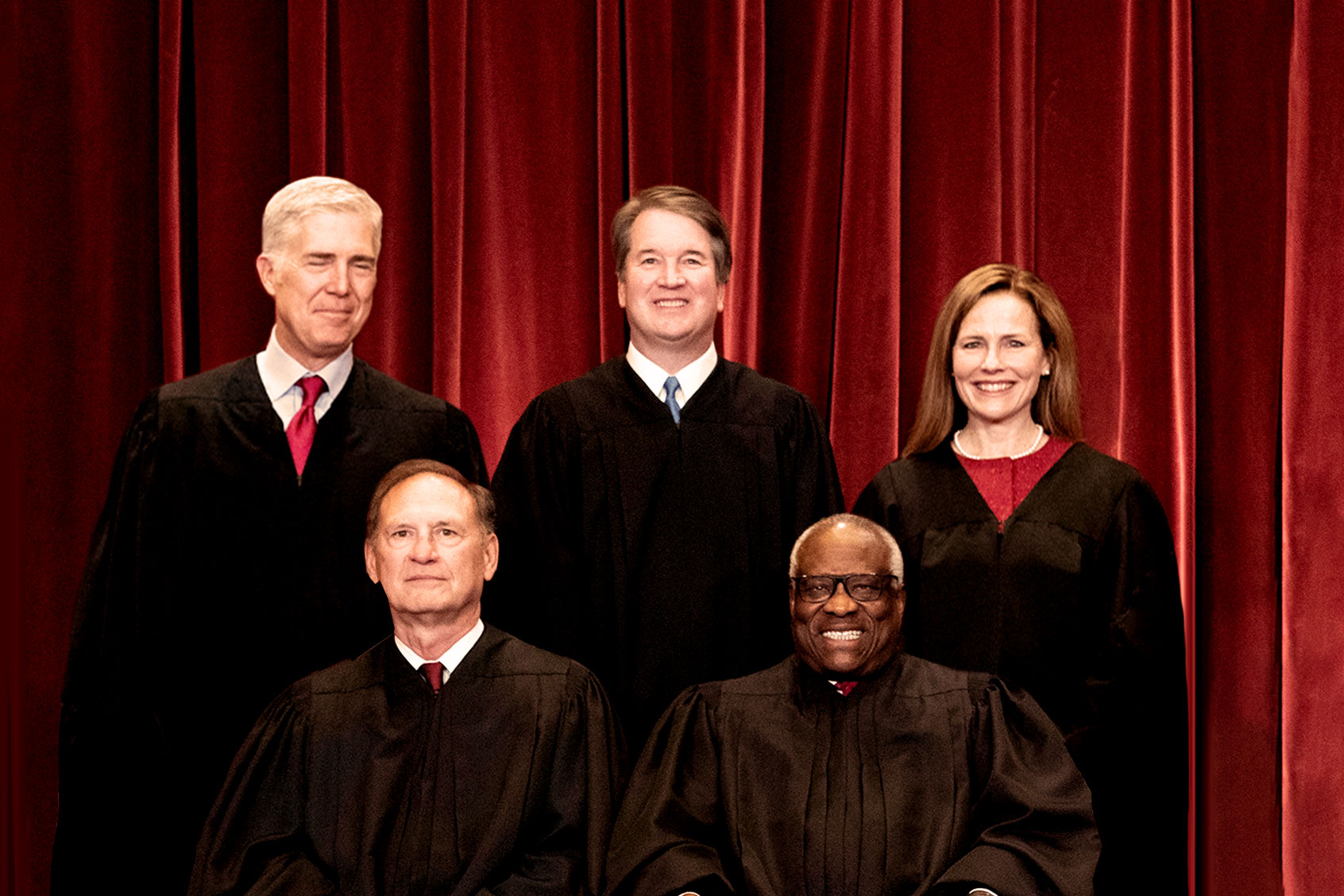If it was ever unclear how the Supreme Court could entrench inequality, look no further than its latest set of decisions in the 2024-2025 term, according to Leah Litman, a University of Michigan professor of law. A key outcome of the Supreme Court’s decisions this term, Litman argued, was making it easier for some litigants to file cases and win the remedies they sought, while making it harder for others to do the same.
One example she noted was in the court’s decision to limit district courts’ power to impose nationwide injunctions, which courts have used in many of the ongoing civil rights cases involving the Trump administration, while not allowing Medicaid beneficiaries to sue over states’ decisions to boot certain providers out of the program. She also pointed to the work of Ernst Fraenkel, a German-Jewish lawyer and political scientist, and his description of the Nazi regime’s creation of two co-existing legal states: one that operates according to rules and regulations, and another that exhibits violence and power unchecked by law.
“If you are wondering whether our regime has certain parallels to the dual state that Fraenkel decides,” Litman said Wednesday. “I would point you to a footnote in Justice Jackson’s dissent in the birthright citizenship case that cited Fraenkel, ‘Dual State’ in talking about the regime of executive lawlessness that the court had ushered in.”
Litman’s argument came during an online webinar in response to a moderator question about the nation’s connection to a dual state, which protects some citizens from the law while binding others to it instead, under the Trump administration. The “Strict Scrutiny” podcast co-host joined other legal experts for a post-mortem hosted by the liberal Center for American Progress concerning the most “egregious” decisions of the Supreme Court’s latest term. They discussed how the justices have enabled and emboldened the Trump administration’s actions ahead of the next judicial term through a slate of rulings on immigration and health care.
Aaron Reichlin-Melnick, a senior fellow at the American Immigration Council, bemoaned how some of those decisions in favor of the Trump administration lacked any explanation of the justices’ reasoning despite the plaintiffs strong legal arguments, pointing to the decisions in Noem v. Doe and Noem v. National TPS Alliance, which allowed the administration to rescind temporary legal status of more than half a million immigrants.
“Here, the Supreme Court allows the administration to go forward with mass stripping of legal status — that it prevented in its first term — and yet offered no explanation whatsoever, which is particularly egregious given the number of similar cases that are still working their way through the system and are still being adjudicated,” he said.
We need your help to stay independent
The high court’s move then leaves the lower courts with “absolutely no guidance” on the reasons their decisions were overturned, leaving “the administration with even more discretion to take away status and impact people in ways that are immediately felt” and limiting tools litigators have to challenge unlawful policies, Reichlin-Melnick added.
The lower courts and the Supreme Court are also increasingly at odds over the Trump cases, Reichlin-Melnick said. Whereas the lower courts contend with the specific facts of each case, the justices instead make decisions based on “abstract records that act as if the facts are not in the record.”
The district courts are ruling the way they are “because they are actually looking at what the Trump administration is doing, and they are seeing the presumption of regularity is gone,” he said. “The administration is broadly ignoring the courts, or in many circumstances, if not ignoring, simply turning a shoulder to and downplaying, stonewalling … slow walking these decisions and these actions, but the [Supreme Court] is essentially blessing that and endorsing that.”
Anthony Michael Kreis, a Georgia State University College of Law professor, suggested that the Trump administration’s moves have been patently anti-American, arguing that the president’s actions — “running roughshod” over Congress, dismantling government and governmental entities without legal backing, deporting people without due process, deploying troops in Los Angeles and attacking academic freedom — resemble the actions of the British government that American colonists disavowed in 1776.
Start your day with essential news from Salon.
Sign up for our free morning newsletter, Crash Course.
“These are similar things that our Declaration of Independence rejected as lists of grievances, an indictment against the British government that gave us the birth of our nation, and eventually were things that were reflected in the Constitution, but also the Bill of Rights,” Kreis said. “Here we are with the court just not caring, not thinking about these first principles. And I think that’s a real travesty, just in terms of our constitutional development. It’s a real, I think, abdication of taking history seriously.”
Kreis also called on the legal community to be more critical of the Supreme Court, parsing out its actions and their impact, and taking it to task, instead of deferring to the justices as it traditionally has.
“Challenging the Supreme Court, I think, is an important thing to do. It is important to say: ‘This is wrong. This is not correct. The law shouldn’t be this way. The court should explain itself,’” he said. “We should be critical of the court’s decisions in a thoughtful and meaningful way, and we need to be encouraging the public to see the wrongs of what the court is doing.”
Read more
about the Supreme Court


